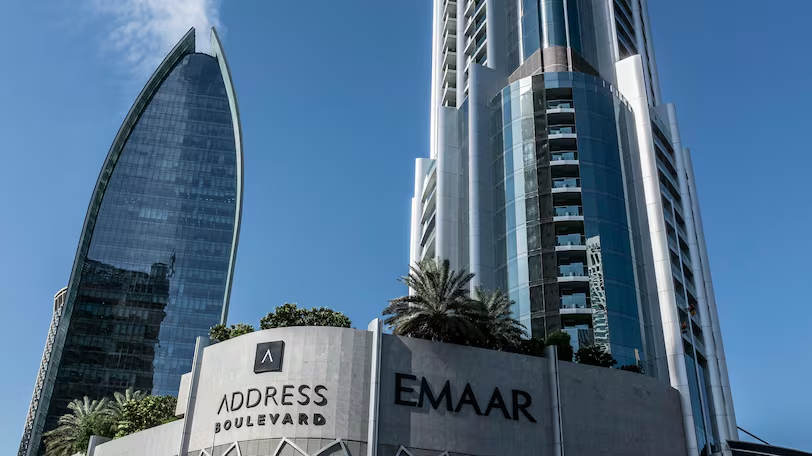A Step-by-Step Guide to the Process of Purchasing Secondary Market Property in Dubai

The process of purchasing a secondary market property in Dubai is relatively straightforward, transparent, and fast compared to most other parts of the world. Whether you're looking to buy or sell a property, and whether it's ready or under construction, understanding this process is crucial. It helps you make informed decisions and ensures the best protection of your rights, time, and money, maximizing efficiency and minimizing costs throughout the buying or selling journey.
Inspection Advice
When buying a property, especially in the resale market, it’s crucial to do an inspection. This lets you look over the property's condition, from its structure to the utilities and any appliances or furniture that come with it. Hiring a professional inspector is a great idea—they can spot any problems that might need fixing, which could help you negotiate the price if needed. A detailed inspection gives you a clear view of what you’re buying and peace of mind.
Payments and Title Transfer Synchronization
In Dubai, all payments in secondary market transactions are typically made at the time of ownership transfer to protect both the buyer and seller. This is the preferred practice to avoid risks, ensuring that payments are made upon the official transfer of the property ownership. Some buyers may agree to pay a down payment to the seller upon signing and before the execution of the ownership transfer; However, we generally advise against it, and we recommend full payments upon the transfer only.
Sales and Purchase Contract (F)
In Dubai's real estate market, after agreeing on the price and the date of the ownership transfer, a sales and purchase contract is signed between the buyer and the seller. This agreement must be the standard contract provided by the Dubai Land Department, which is digital and created through the Dubai Land Department's system. This contract is called “Contract F”, It is electronically signed by both parties, and during its validity period, the sale of the property to anyone other than the registered buyer, will not be possible by the system.
The Contract F, is prepared digitally by the seller's agent. If your real estate agent represents both the buyer and the seller, they will prepare the Contract F. If there are separate agents for the buyer and the seller, then after agreeing on the price, transfer date, and any additional terms, it's the seller's agent's responsibility to create the contract F. The main terms and content of the Contract F cannot be altered or edited. Agents must include and specify any agreed-upon terms and conditions between the buyer and seller at the end of the contract under the additional terms section.
Additional Terms
Here I explain the most important rules, key points, and the most common terms of real estate Sales and Purchase Contracts in Dubai. and I recommend that for a greater emphasis and clarity, when buying or selling a property, ask your agent, and make sure that these points are mentioned in the additional terms section of your sales and purchase contract. This way, both the buyer, seller, and the agent will have a clear and transparent understanding of these points and agreements, and the likelihood of potential issues will be minimized and it will bring you closer to a seamless experience. This approach ensures that your transaction is smoother, faster, and accompanied by an easy and enjoyable experience that protects your rights, money, and time.
Transfer NOC
Make sure that the date of the ownership transfer and the date of applying the Transfer NOC are specified and mentioned. The Transfer NOC is a No Objection Certificate from the developer, or owners' association of the building or project, which indicates that at the time of the NOC request, the seller has no outstanding payments for installments or service charges for the property, and there are no objections to transferring ownership. Note that NOCs are usually valid for fifteen days. Therefore, request the Transfer NOC when you are ready to proceed with the ownership transfer within its validity period to avoid the need for a new NOC. The Transfer NOC fee is generally AED 525 for ready properties and AED 5,250 for properties under construction, which the seller pays to the developer when requesting the NOC. In some cases, there is an agreement between the buyer and seller that the buyer will reimburse this amount to the seller at the time of the ownership transfer. The Transfer NOC fee does not exceed AED 5000 plus VAT, totaling AED 5,250.
Buyer’s Security Deposit Cheque
At the time of signing the Sales and Purchase Contract, the buyer issues a security deposit check, which is typically ten percent of the property's purchase price, payable to the seller. This security check should remain in escrow with the consultant until the date of ownership transfer and be returned to the buyer upon the successful transfer of ownership. The purpose of this security check is to ensure good faith in completing the transaction. If the buyer breaches the contract, and backs out or withdraws from the deal, and this breach is confirmed and determined by the court, the seller may use this check, following a court order, as a compensation for the buyer’s default.
Mortgage Buyer
Another key condition to include in contracts is how the buyer plans to pay, especially if they're relying on a mortgage. The deal could depend on the buyer’s mortgage being approved for a specific minimum amount. If the mortgage isn’t approved by a certain date, or if the approved amount is less than a certain amount, the buyer might have the option to either go through with the purchase or cancel the deal without penalties. In that case, the contract would be considered null and void. When a buyer is depending on a bank loan, it’s important to discuss and agree on this point upfront. The result of this agreement should be clearly stated in your Sales and Purchase contract to ensure that, if the mortgage conditions differ from the buyer’s expectations, the rights and obligations of both the buyer and seller are clearly defined and understood.
Rented Property
The next point is about whether the property is rented or vacant. If it’s rented and the lease is registered and updated in the Ejari system, the rent amount and payment date will automatically show up in the main part of the Sales and Purchase Contract. For rented properties, it’s a good idea for buyers to review the rental contract’s terms and details before signing the contract F. Usually, it’s agreed that the rental income will be divided fairly based on the day of the ownership transfer. Means, until the day of transfer, the rent goes to the seller, and from that day on, it goes to the buyer. This arrangement for rent payments after the transfer should be clearly mentioned in the contract. After the transfer, the buyer signs a new rental contract with the tenant that keeps the same terms, dates, and rent amount as the current one. In other words, the change in ownership doesn’t affect the tenant’s lease terms, rent amount, or contract expiry date.
Eviction Notice
When buying a rented property, keep in mind that if an official eviction notice has not been served to the tenant, the expiry date of the tenancy agreement does not necessarily mean that the tenant is obligated to vacate the property by that date. For the rental laws and the rights of landlords and tenants, I will prepare a separate detailed video later.
Furniture
If the property you are buying is not rented, specify in the Sales and Purchase Contract whether furniture, equipment, and the condition of the unit are included or not. If the property has furniture or equipment, it is recommended to attach a list or, preferably, photos of the furniture to the contract, signed by both the buyer and the seller, to clearly identify the items sold with the property. Additionally, in case of any missing keys, entry cards, or access cards for the building’s shared facilities and common areas, clearly negotiate, agree upon, and specify in the contract any arrangements between the buyer and seller, like compensation or replacement fees for keys, cards, or any other accessories.
Bills
Utility bills for things like water, electricity, gas, facilities, and etcetera should be settled on the day the ownership is transferred, unless the buyer and seller agree otherwise. Just make sure to keep this in mind and clearly include any agreement about these payments in the contract.
Service Charges
For Service Charges and Common Area Fees, the standard practice in Dubai’s real estate market is to calculate these fees on a pro-rata basis on the day of the transfer and settle them between the buyer and seller. Service Charges are the responsibility of the seller up until the transfer date, and after that, they are the responsibility of the buyer. To calculate the daily Service Charge and rental income on the day of ownership transfer, you can ask assistance from your agent. It’s a good idea to review these calculations a day before the transfer to make sure they’re accurate.
Delays and Force Majeure
One point we make clear in the Sales and Purchase Contract is the cooperation, goodwill, and obligation of both parties to provide the required documents and take the required actions at the required times in accordance with the instructions, guidelines, and policies of the developer, Dubai Land Department, and related authorities. We suggest mentioning that any delay or restriction from the developer/ Dubai Land Department/ Trustee Office/ any government authority, or any delay due to an unforeseeable act of nature (force de Majeure), or anything that is beyond the buyer's or seller's control and will, shall not be considered a breach of contract by either party, and the agreement shall be automatically extended by 30 days. And any further extensions will be made only with the mutual agreement of the parties. Whatever your agreement is on this, I suggest keeping it clear and transparent.
Breach, Default, and Non-Disclosure
Both parties to the contract, the buyer and the seller, must be aware that in the event of a default, a claim for the compensation penalty will be filed with the Dubai Courts against the defaulting party. In this instance, the agent will serve as a witness.
Breakdown of Payments
For the breakdown of payments, it is recommended that all amounts payable by the buyer and seller be clearly and completely listed in a separate clause. For secondary sales of off-plan properties, these costs typically include the purchase price (also known as the original price) of the property, amount already paid by the seller to the developer, selling price, transfer fee (which is 4% of the selling price), Trustee Office fees (which is AED 2,100 for transactions under AED 500,000 and AED 4,200 for transactions of AED 500,000 or more), Title Deed and site plan fees which is up to AED 580, Commission payable by the seller, and commission payable by the buyer. Clearly specifying all fees and who is responsible for each one in the contract is highly recommended. In secondary sales of off-plan properties, the amount payable by the buyer to the seller is equal to the amount already paid by the seller to the developer plus the difference between the original price and the selling price (that we call it “the premium”). After the transfer, any subsequent installment payments, according to the payment plan which is usually linked to the construction progress, will be the responsibility of the buyer, who will pay these to the developer in the future.
When reselling an off-plan property, in most cases, if an installment is due within one month from the date of the Transfer NOC request, that installment must be usually settled before requesting the Transfer NOC. The resale conditions for under-construction properties may vary for each unit and project. Some off-plan properties may require reaching a specific payment percentage or completing all installments before requesting the Transfer NOC. Make sure to review these terms in the Sales and Purchase Agreement or consult the developer’s customer service department for clarification.
For the resale of fully paid properties, there is no need to mention the original price or the seller's purchase price.
For better clarity and transparency, you can add a clause to your contract stating that all taxes, fees, and charges are the responsibility of the seller up to the transfer date and the responsibility of the buyer after the transfer.
Read Also : Primary Process of Purchasing Property in Dubai
Blocking
Let me give you a quick overview of the property blocking system before the transfer. When the seller bought the property with a mortgage and still has a bank loan on it, there’s a process called "property blocking" to make sure the buyer doesn’t have to clear the seller's mortgage upfront. After signing the sales and purchase contract, the seller asks their bank for a liability letter. Once they get it, they give a copy to the buyer, the buyer will prepare 3 manager’s cheques: one to pay off the mortgage, one for the remaining amount owed to the seller, and one for the transfer fee payable to the Dubai Land Department. The buyer and seller (or their legal representatives) visit a Trustee office with the Transfer NOC, passports, ID’s, and the manager's cheques. They request property blocking, which involves a small fee of about AED 1,500. At this point, the property is “blocked” in the Dubai Land Department’s system. After blocking, the bank’s manager’s cheque will be used to pay off the mortgage, and once the mortgage is cleared and the bank provides a clearance letter, the transfer can go through without needing the buyer or seller to be present again. After that, the seller (or their representative) can collect the cheque, and the buyer gets the new title deed by email and can also access it through the Dubai REST app.
If this blocking process is involved, it’s a good idea to outline these steps in the contract. Also, when either party uses a mortgage, each is responsible for their own costs to register or de-register the mortgage.
AML & KYC Compliance
Also, keep in mind that when buying a property in Dubai, it’s important to understand the regulations of Anti-Money Laundering (AML) and Know Your Customer (KYC). These rules help prevent illegal financial activities and make real estate transactions more transparent. Real estate companies and agents are required to follow certain AML regulations, like verifying identities, confirming the source of wealth and source of funds, and reporting any suspicious transactions. So, you’ll need to provide the necessary documents and information, like ID, proof of address, your financial details, to meet the AML and KYC requirements.
Paperless Transactions
To wrap up, just a reminder that in Dubai, thanks to advanced technologies used by the Dubai Land Department, all real estate transactions—from buying and selling to ownership transfers and lease agreements—are done electronically, with no physical paperwork needed. This fully paperless approach, doesn’t just cut down on paperwork; but also makes everything more transparent, speeds up the processes, and makes things more convenient for investors, residents, and real estate professionals here in Dubai.
Here Watch this video guide to learn how to buy secondary property in Dubai step by step.
Thank you
I hope the topics covered in this video are helpful to you and that by raising awareness, they lead to more transparency, more convenience, and the protection of the rights and money and assets of buyers and sellers. Thank you for liking this video and sharing it with your friends. Please feel free to leave your comments and questions in the comments section or send me a message. My colleagues and I will be more than happy to assist you.
Get In Touch
Latest Blogs

Distinguish Between Foreign Trade and Foreign Investment

Emaar profit rises by record 30% backed by strong Dubai demand

How to Find the Best Commercial Properties for Rent in Dubai

Dubai aims to eliminate landfill sites by 2041, says energy council

